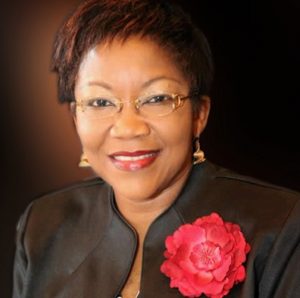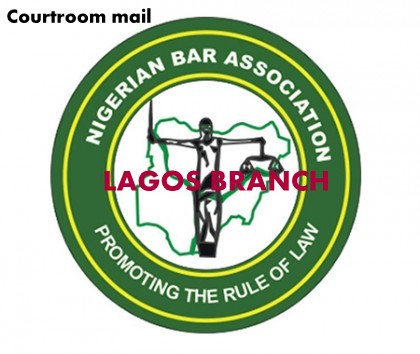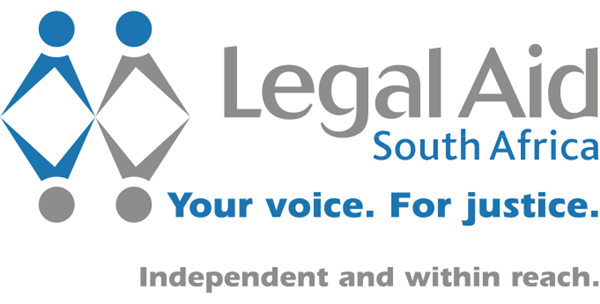What is the state of Nigeria’s maritime sector? How can indigenous players get a larger share of deployments in the industry? Mfon Ekong Usoro – for this discussion, Secretary-General of the Memorandum of Understanding on Port State Control for West and Central Africa joined CNBC Africa for this discussion on 26 September 2019. She was interviewed by Esther Awoniyi.
Question: how would you describe the current state of the Nigerian Maritime Sector?
Mfon Usoro: we can look at it from the point of the participation of Nigerians in the maritime trade or from point of access to Nigerian market and quantum of cargo that comes into Nigeria; Nigeria is a largely import reliant economy, we have more import now than existed two years ago when there was depression.
Question: we hear that Africa’s maritime industry is still relatively underdeveloped. What challenges would you say still stand in the way of progress:
Mfon Usoro: not just in Nigeria, the mi has a lot of potential. We can say that Africa is an island; surrounded by seas and that portends a wide range of potentials because the ocean provides a wide range of resources where a nation can tap from to develop its economy. Are we tapping as it should is the issue to be discussed today. What determines the extent of activity in the ms is also the market size, the infrastructure and the strategic direction of the country; the ms is very rich, you could have those who invest in ownership of ships- shipping companies, you could have those who invest in logistics being facilitation of cargo from point of origin to the door of the consignee or consumer a whole lot goes on here, we also have the ports dealing with terminal operations and even the linkages from ports to the hinterlands.
Nigerians have invested in various areas I have talked about but infrastructure is very much government dependent at the moment. It is a challenge that Nigeria had taken on in 2005 where terminal operations were privatised to allow private operators introduce new efficiency into ports operations. We also see same development in other West African countries like Ghana to introduce not just capacity but efficiency.
Question: port infrastructure and support infrastructure, from Nigeria to central Africa, what is the story of how much we invest in port infrastructure.
Mfon Usoro: for the countries that have privatised their ports, a huge amount of capital is being invested. Some of the investors are foreign and some are local too; which is a good thing. Like in Nigeria, we have local and foreign port operators and in modernising the ports handed over to them; we don’t have the data but from newspapers and what we get when we talk to them, tremendous investment has been done in the ports infrastructure. The other area that we really may have to speak about that hasn’t seen much investment is that of owning vessels and operating vessels by investors in this our region.
Question: how do we unlock that investment. How do we begin that journey of owning vessels? What are the options available to them?
Mfon Usoro: owing a vessel is not just dependent on the individual company. It is a whole gamut of activities that will support investment in shipping companies. For instance, I may be interested in running a shipping company, owning a ship, to do that I will need to understand the business, what it means and that is different from buying a car and putting a car on the road for haulage. The surrounding business environment much be favourable so that I will have the expected returns on my investment. You need to understand the traffic in the market, choose where your market is going to be. Do you want to go on international sea bound trade, coastal trade or within Nigeria or in the region? You choose that depending on the size of your pocket. Look at the financial institutions in the country, which one supports the industry of shipping. You have to make sure the environment supports your business. Shipping worldwide is so critical and important, the nations who have emerged as great shipping nations are those that the whole of government put in the effort to support their shipping companies. There has to be adequate and proper access to funding and those nations are able to provide funding in single digits for those who want to purchase and run shipping companies. They also provide and manage several other fiscal incentives. Any country that wants to emerge in Africa to be a ship owning company must be interested in these things so that investors will be interested in flagging their ships in those countries and also operating on the routes. For example: the ship itself is very expensive. How does the country encourage the purchase and registration of vessels? Giants in Europe and Asia have zero importation tax on the ship. South Africa has also gone that route.
Question: is it a one off tax or recurrent
Mfon Usoro: one off. It is very very expensive and discouraging.
Question: has this been tabled in talks with the government by NIMASA?
Mfon Usoro: it is one of the top issues by NIMASA and Nigerian Shippers council.
Question: has govt given a clue?
Mfon Usoro: govt is interested in ease of doing business by all industries in Nigeria. Representations have been made by NIMASA, Nigerian Shippers Council and Ship Owners Association of Nigeria, Minister of Transport has also taken it up. Nigerians have put that in the front. It would help if that is worked on because the reputation of the country is very much linked to the turnage that flies that country’s flag. Airline industries have zero importation duties.
Question: it would appear that things are about to change in the African continent, what will be the place of the maritime sector within the ACFTA? How will this bring change in the maritime sector?
Mfon Usoro: it is a giant stride, we are all excited about it, regional trading communities already exist but having it at a continental level- time is ripe for that. Right now, they have negotiated for goods, not yet services. Maritime transportation falls under services. It portends a good opportunity for Africans and foreigners who want to invest in Africa. When we speak about integration, which is the aim of the AU commision and the African Continental Free Trade Agreement, transportation linkages is one of the greatest weapons for integration and for African trade. With specific respect to the maritime sector, even if we are talking about trade in goods, it is intended that those goods will be manufactured in Africa, depending on the type of goods. If agricultural goods, Africa is blessed with good lands but to make it into industrial farming, we need to import the machineries, the chemicals… if we are talking about other kind of goods like electronics and so on, some if not many of the components will have to be imported… it still rests back on shipping. When we emphasise on other sectors, we forget that a critical component of that being a profitable business venture depends on transportation linkage which is maritime.
If the cost of the equipment coming to the factory is not competitive, the goods that will be produced in that country will also not be competitively priced in the inter African trade. While the AFCTA may open up the market, those that will take advantage of the market are those that will provide infrastructure at a commercial rate that adds value and those economic and commercial sense for investment.
Question: how is Nigeria preparing, what specific steps are being taken to accommodate the incoming free trade era?
Mfon Usoro: I will like to leave that to the government, policy making agencies. The industries were sceptical about Nigeria signing up the AFCTA, the reason is our state of preparedness in terms of being able to produce goods in Nigeria at a competitive rate, the point has been made clear to the government, top quality at competitive price is necessary. I want to believe those are part of the things being tackled by the ease of doing business initiative in the presidency
Question: you are the Secretary-General of the Memorandum of Understanding on Port State Control for West and Central Africa., what do you do?
Mfon Usoro: it is an intergovernmental association of 22 member states, countries, from Mauritania to South Africa. Our job is simply to ensure and enforce compliance with international maritime codes, conventions with respect to safety of navigation, technical integrity, safety of the vessel, welfare of the captain and the crew on the vessel. We train inspectors which we call post it control inspectors in each of the countries- to ensure compliance. A vessel may be registered in Ghana but trades in another part of the world, safe for PICI, nobody may know about the welfare of the vessel and that will portend danger for everyone when there is a marine incident involving such a substandard ship. We have 9 PICI regimes plus US coast guide making it 10, wherever a ship goes, irrespective of where it was registered, that ship will be inspected. It reduces incidence or marine accidents and pollution of the waters.
Question- maritime security. We know Nigeria is to host an event later this year. How big a problem is it on African Continent?
Mfon Usoro: it is not desirable. At some point the attention was in Somalia, we still have in the west and eastern coast of Africa. It is not a one country problem. Unlike security on land where you have borders between countries, the sea has no boundary- all are affected. Most of the piracy happens in the Exclusive Economic Zones not coastal waters, it is important that we all join hands to fight piracy.
Question: how would you describe the level of cooperation at this point?
Mfon Usoro: it is serious, there is the global one, and we also have the gulf of guinea commission, we have partners from Europe and the US who are partnering to provide assets and manpower on how to attack the problem. The Nigerian Navy and NIMASA have invested a lot in acquiring assets . Indeed, the global conference on maritime security is October. From my point of view, the international community should go beyond the training and the assets to go to what the world did with the blood diamonds, the pirates come in because of the hydro carbon- the crude oil and there is a way that crude oil taken from these zones could be identified, so that any country or company purchasing this oil will be given same treatment given to companies or countries that purchased the blood diamonds. Other illegal activities like unregulated or unlawful shipping, let us target the beneficiaries; the bunker has no market. If they know that they will have no buyers, it will cease to be an attractive trade. Just like naming and shaming slave labour in Asia and Africa.
See video here.



